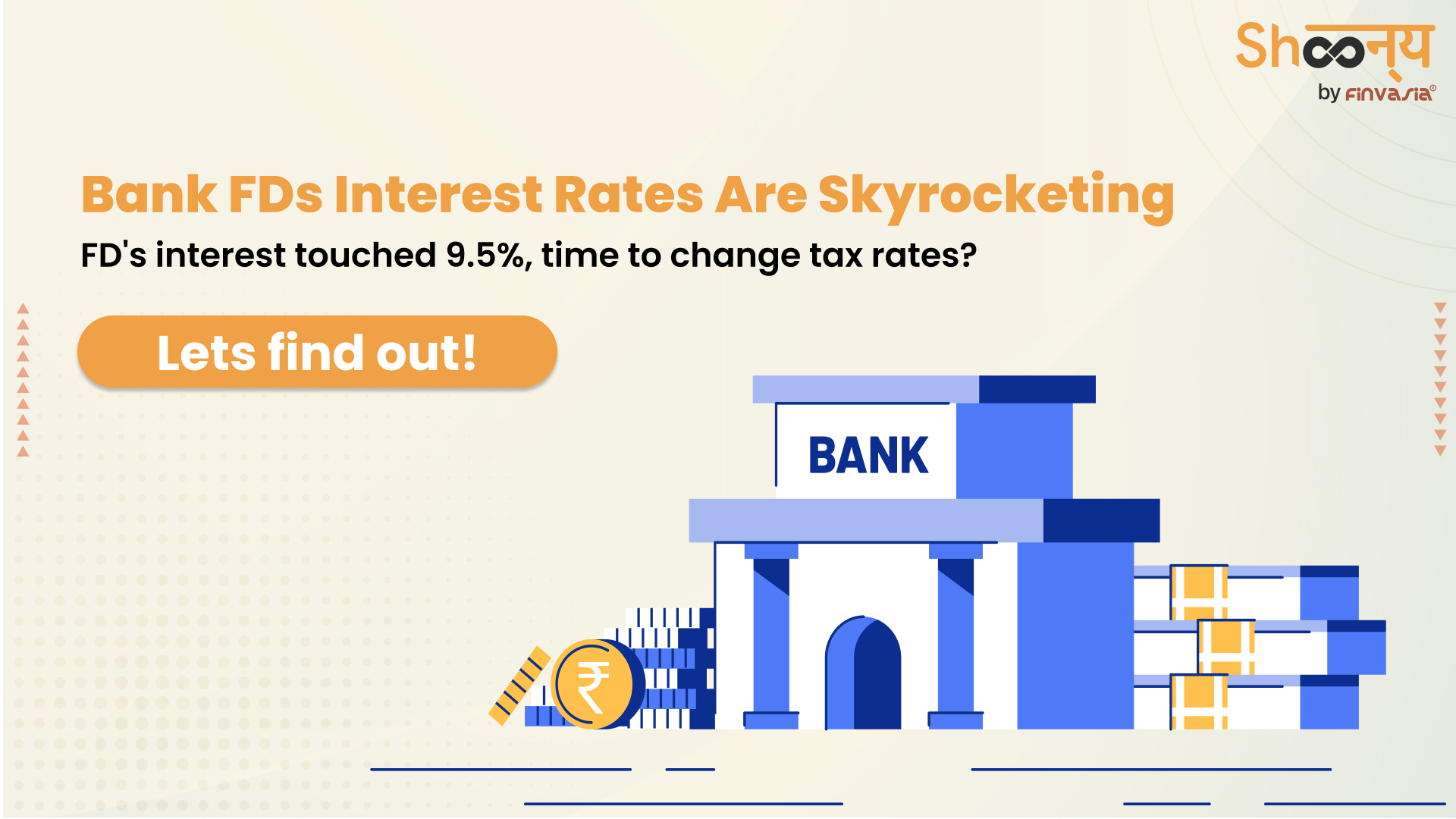Bank FDs – Interest Rates Surged to 9.5%, Do We Need a Change in FD’s Taxation?

Fixed deposits have always been Indians’ favorite investment. The low to no risk feature of bank fds along with a fixed interest rate, and preservation of capital make it perfect for the investment goals and ideas of the people in general. A few years back, the dropping bank fd interest rates raised a concern amongst the people but the faith in this instrument didn’t see any significant fall. In recent times, there have been significant changes in the whole deposit system of the banks, in which FDs play a crucial role, and here we will be discussing the same.
Rising Bank FD Interest Rates
Fixed deposits or term deposits have been famous for the fixed returns that they offer. While the interest rate is fixed that is for a certain period. Recently, there has compositional shift in bank deposits due to the increasing bank fd interest rates. The interest rates on fds in some banks have even gone up to 9.5%, which has increased the term deposits’ share in the total deposit of banks to 59% in FY24 compared to 56.5% in FY23.
Key points to know
- Public sector banks (PSB) are mainly mobilizing the fixed deposits across the banking sector
- The average ticket size of bank fds in the PSBs is around ₹ 72557
- The average fd ticket size in private banks is around ₹ 1.60 lakhs
- In foreign banks, the average ticket size for fds stands at ₹ 10.5 lakhs.
- The public sector banks are mainly working at the grassroots level and women’s participation in opening bank accounts and availing other financial facilities has increased over time.
Demographics in Deposits
Even though the interest rates have spiked the return on bank fixed deposits has always been lower than equity or other financial instruments mostly. The younger generation is looking for better-return-generating assets, even though they have to take higher risks. Currently, senior citizens hold 47% of the bank fds. On the contrary, the median age of capital market investors is 32 years, and close to 40% of the investors are even less than 30 years of age. This suggests the younger generation is preferring mutual funds and equities over traditional assets.
Why does taxation on FDs need to change?
Given the current deposit scenario in the banking sector, the government and RBI should consider revising taxes on deposits to gain younger investors. A change in the taxation and tax rates can help the investor generate better returns from the FDs. As per the SBI report, annual data of per capita income ranging from 1970-71 to 2023-24 has been analyzed for sensitivity due to taxes on deposits. The results suggest the tax individual income tax has been used as a control variable. For ₹ 1000 increase in per-capital income, the deposits have increased by ₹ 613 taking the control variable; otherwise, it would have been a rise of ₹ 652. This is the main reason for changing the taxation on bank deposits, as there is a major impact on the returns of the investors but a uniform tax treatment for the short and long-term FDs will have a nominal effect on government revenue.
How overall CASA deposits have been affected?
While the fd interest rate hike has pushed the bank fds’ demand higher, the overall deposit growth was recorded at ₹ 61 trillion in FY22 while the credit growth was recorded at ₹ 59 trillion for the same period. The CASA deposits have been mainly dependent on UPI transactions nowadays. Especially the savings account deposits are mainly for UPI use. Since the use of savings accounts is getting limited, the deposits in savings accounts fell to 41% of total deposits in FY24 against 43.5% in FY23.
Wrapping up
Since bank fds have been an integral part of every Indian family, having a fair taxation of fixed deposits policy can help the citizens to reap the benefit of these deposits properly. This can also help get the attention of the younger generation as well and increase their investment in traditional investments.
Source: TheEconomicTimes
______________________________________________________________________________________
Disclaimer: Investments in the securities market are subject to market risks; read all the related documents carefully before investing.








